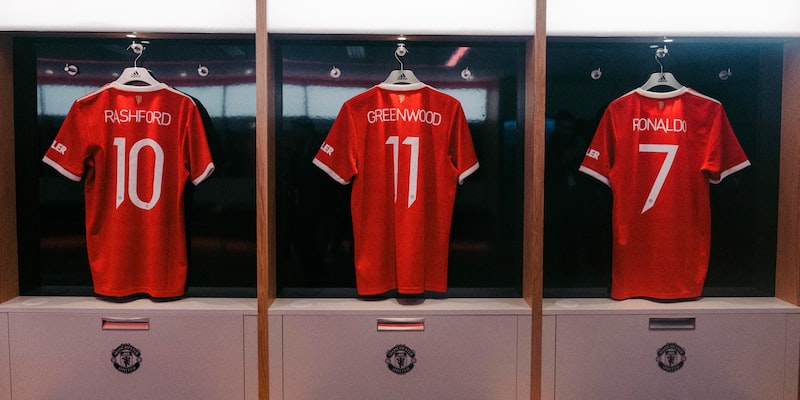How do private soccer leagues make their money?

Private soccer leagues can be a great way for soccer fans to engage in the sport and make a profit. But how exactly do private soccer leagues make their money?
One of the major sources of income for private soccer leagues is through entrance fees. When someone joins a private soccer league, they usually have to pay an entrance fee. This fee goes towards covering the costs of running the league, such as paying the referees, providing equipment, and other costs associated with the league. This fee can vary greatly based on the size and level of competition of the league.
Another source of income for private soccer leagues is through sponsorships. Many companies are willing to sponsor private soccer leagues in exchange for marketing exposure. This can be done through advertisements, signage, or even having their logo placed on team uniforms. In addition to providing a financial boost, sponsorships also help increase the visibility of the league, thus giving it more credibility.
Finally, private soccer leagues can also generate revenue through merchandise sales. Many leagues create merchandise such as hats, t-shirts, and other items with their logo or team colors. These items can be sold to fans or even to other teams, providing a nice source of revenue for the league.
As you can see, there are many ways that private soccer leagues can generate income. By charging entrance fees, securing sponsorships, and selling merchandise, private soccer leagues can generate a significant amount of money. This money can then be used to cover costs associated with running the league, and even help the league to grow and expand.
Private soccer leagues have become a major part of the soccer industry, providing competition and entertainment to millions of fans around the world. While the popularity of private leagues continues to grow, it's important to understand how these leagues make their money. Here are some of the key ways private soccer leagues leverage revenue streams to stay afloat:
Sponsorship Deals
Sponsorship deals are one of the most common ways that private soccer leagues make money. By forming partnerships with businesses and organizations, leagues can bring in additional revenue while also increasing their brand visibility. These deals typically involve sponsorships of the league itself, as well as individual teams and players. The most successful leagues are able to secure multi-year contracts with high-profile sponsors.
Television Deals
Another major source of revenue for private soccer leagues is television deals. By making their games available to viewers around the world, leagues can increase their exposure and generate additional revenue. The most successful leagues are able to secure multi-year contracts with major television networks, allowing them to tap into larger audiences and bring in more money.
Merchandise Sales
Selling merchandise is another popular way for private soccer leagues to make money. From jerseys and hats to mugs and mouse pads, there are a variety of products that leagues can sell to their fans. The key is to create a product line that appeals to a wide range of consumers and is easy to purchase online. This allows leagues to maximize their revenue potential.
Ticket Sales
Finally, ticket sales are another key revenue stream for private soccer leagues. By offering fans the chance to attend live games, leagues can bring in additional revenue while also providing a unique experience for their supporters. Leagues can also sell tickets for special events, such as tournaments and exhibitions, to further increase their revenue.
Overall, private soccer leagues have a variety of different ways to make money. By leveraging sponsorship deals, television contracts, merchandise sales, and ticket sales, leagues can generate enough revenue to remain profitable and continue to provide fans with exciting soccer experiences.
Private soccer leagues make their money by taking advantage of the commercial opportunities that come with running a sports league. This includes things like ticket sales, broadcast deals, sponsorships, merchandise, and other forms of corporate partnerships. Each of these sources of income can contribute to the overall profitability of the league.
Ticket Sales
Ticket sales are an important source of income for private soccer leagues. The cost of tickets can vary depending on the popularity of the league, the venue, and the team. The more popular the league, the more expensive the tickets are likely to be. Ticket sales are also a great way to generate revenue from local fans who support their team.
Broadcast Deals
Broadcast deals enable private soccer leagues to make money by selling the rights to broadcast their games to television networks. These deals can generate significant revenue for the league, depending on the size of the network and the audience that the league can attract. This can also be an effective way to boost the profile of the league and attract more fans.
Sponsorships
Sponsorships are another important source of income for private soccer leagues. Sponsors can provide financial support in exchange for advertising rights and access to the league’s fan base. This can be an effective way for sponsors to reach potential customers, and it also provides additional revenue for the league.
Merchandise
Merchandise is a key revenue stream for private soccer leagues. The sale of official team merchandise can generate significant income, especially if the team and the league are popular. This income can be further supplemented by the sale of branded merchandise from sponsors and other corporate partners.
Conclusion
Private soccer leagues make their money by taking advantage of the various commercial opportunities available. Ticket sales, broadcast deals, sponsorships, and merchandise are all important sources of income for the league. By leveraging these sources of income, private soccer leagues can increase their profitability and ensure their long-term success.
The economics of private soccer leagues are complex and varied. While most leagues are not-for-profit organizations, some leagues do generate revenue from various sources. To better understand how private leagues make their money, it's important to look at the various sources of income.
Sponsorships
Many private soccer leagues receive financial support from sponsors. These sponsors can range from local businesses to large international corporations. Sponsors may provide direct financial support, such as paying for equipment and field rentals, or they may provide in-kind services, such as providing uniforms or advertising space. The amount of money a league is able to generate from sponsorships depends on the size and reputation of the league.
Registration Fees
Many private leagues require players to pay a registration fee in order to join the league. This fee can range anywhere from a few dollars to several hundred dollars, depending on the league and the type of membership. This money is used to cover the cost of running the league, such as field rentals, equipment purchases, and administrative costs.
Ticket Sales
Private soccer leagues may also generate revenue from ticket sales. Ticket prices vary from league to league, but typically range from a few dollars to several hundred dollars for a game. Ticket sales are used to cover the costs of staging the games, as well as to generate revenue for the league.
Merchandise Sales
Finally, many private soccer leagues generate revenue from the sale of merchandise. This can include jerseys, hats, and other memorabilia. The amount of money generated from merchandise sales will depend on the popularity of the league and the quality of the merchandise.
The economics of private soccer leagues are complex, but understanding how they make their money can help you determine if a league is the right choice for you. By looking at the various sources of income, you can get a better idea of how the league is funded and how much money it is able to generate.
Joining a private soccer league can be an exciting prospect for any aspiring soccer star. But in addition to the cost of the registration fee, there are many hidden costs associated with joining a private soccer league that can add up quickly and eat away at your budget. Here are some common costs associated with joining a private soccer league that you should be aware of before signing up.
Equipment
The first cost associated with joining a private soccer league is the equipment you will need to purchase. This includes a soccer ball, cleats, shin guards, socks, and a uniform. Depending on the level of competition and the team you are joining, you may need additional items such as a goalkeeper's gloves, training gear, and a warm-up suit.
Travel Costs
In addition to the cost of equipment, you may also need to consider the cost of travel when joining a private soccer league. Depending on the location of the league, you may need to factor in the cost of travel to and from games, as well as accommodations if you are playing in an out-of-town tournament.
Registration Fees
Most private soccer leagues charge a registration fee in order to join the team. The amount of the registration fee can vary widely depending on the level of competition and the age of the players. In most cases, the registration fee covers the cost of the equipment, field rental, and administrative fees.
Coaching Fees
In addition to the registration fee, some private soccer leagues also charge a coaching fee. This fee is usually separate from the registration fee and is used to pay for the salaries of the coaches. The amount of the coaching fee can vary depending on the level of competition and the age of the players.
By understanding the costs associated with joining a private soccer league, you can make an informed decision about whether or not it is the right fit for you. Be sure to do your research and weigh the pros and cons before joining a private soccer league.







